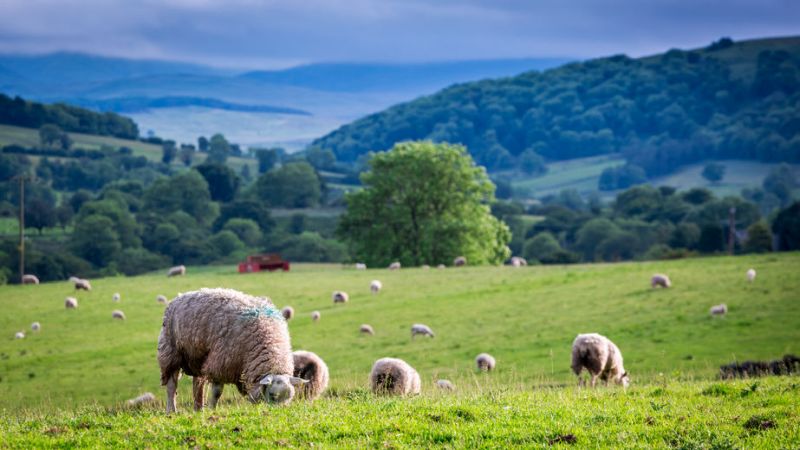
Rural campaigners are calling on the new government to introduce legislation to stop the sale of county farms and to give them a new purpose.
The decline of council-owned farms means young farmers won’t benefit from these 'wonderful assets', according to the Campaign To Protect Rural England (CPRE).
Over 15,000 acres of farmland have been sold in the last decade as cash-strapped councils continue to sell off their land.
But campaigners at the CPRE say the new Conservative majority government 'must recognise their value' to rural communities.
A package of new measures and funding should be available for councils to 'enhance, invest and promote' county farms.
Advocates for council-run farms say they have the potential to address the climate emergency and deliver wider public benefits to communities.
A new report by CPRE in collaboration with New Economics Foundation shows more than 50 percent of county farm estates have disappeared over the past 40 years.
There are several reasons for this; councils have felt the pinch of austerity measures, making the sale of farmland more appealing, and some have been deterred by the requirement to experiment with new income streams or business models.
But these farms can still offer benefits to those councils who retain them, campaigners say.
Those councils that have protected and even expanded their county farm estates report positive results, including in delivering benefits to local communities such as providing locally-grown food for nearby schools.
Seven out of nine councils that responded to the survey featured in the report gave details of environmental and social benefits provided by their county farms.
These ranged from tree planting to local education initiatives to supporting new farmers.
Whitehall Farm, a 100-ha farm owned by Cambridgeshire County Council, is an example of how these farms can make money and deliver public benefits, CPRE's report shows.
The farm is managed by Stephen Briggs on a 15-year tenancy, who takes an agroforestry approach to build the profitability, resilience and sustainability of the farm.
Mr Briggs has inter-planted arable crops with 4,500 apple trees, following a model of planting trees around farmland, or agroforestry.
These provide an income, and protect soil and crops from the risk of extreme weather.
With the ever-growing risks of the climate emergency, Mr Briggs believes this kind of protection is invaluable – now and for the future.
And the farmland is diverse; wildlife and birds such as tree sparrows, reed buntings, yellowhammers, English partridge and owls are flourishing in the natural habitat farmland.
Mr Briggs has also tried out other ways to generate income, opening Harvest Barn farm shop and cafe on his county farm site.
He said: “Thanks to the county farms system, I’ve been able to run my own farm and try an innovative and successful soils-based farming approach.
“The support I’ve received from my local county council has been invaluable. I’d like to see all local authorities encourage new entrants with fresh ideas and perspectives like myself to go into agriculture to keep this wonderful resource in the community as a vital asset.
“There are economic incentives for councils too, as the rent from our county farm and its innovative diversifications goes straight back to the county council, helping fund front-line services.”
The CPRE are calling for the new government to protect and invest in county farms for future generations of young farmers.
